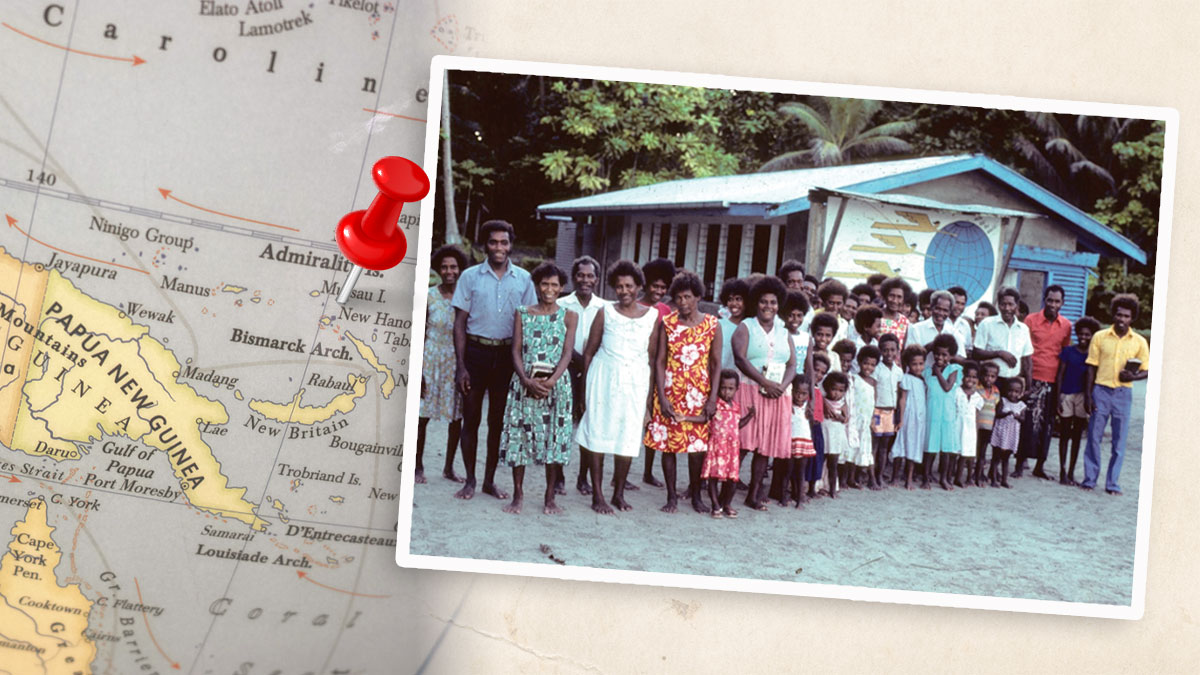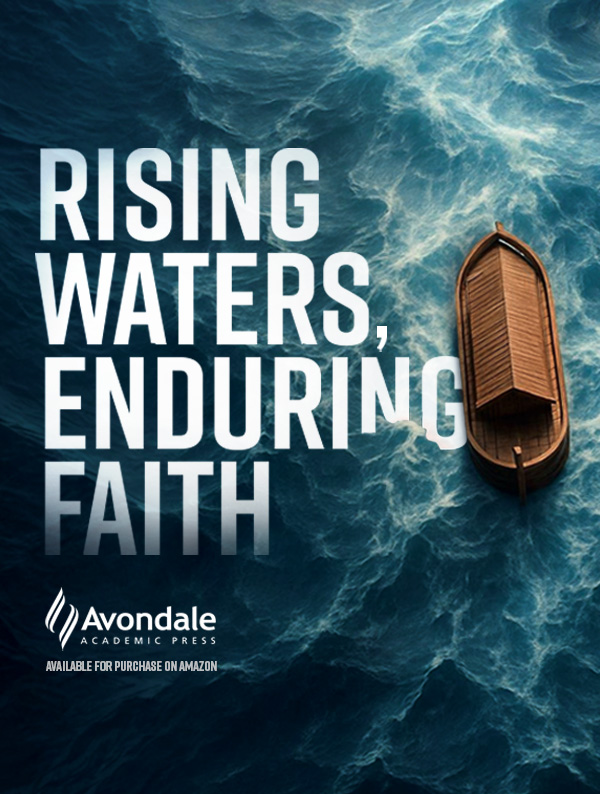A lesser-known island in the South Pacific is Tench Island (also known as Enusi or Nusi Island), which is part of the St Matthias Islands group. This island is very small, being only 55 hectares (about 600m x 800m) in size and having a population of around 100 people. But despite its small size and population, Adventist missionaries saw this island as a valuable people to reach with the gospel message. The first missionaries to visit Tench Island were Adventists in 1930, with ongoing missionaries visiting and staying there to educate and nurture the small spiritual community.
In 1964, after a group of missionaries had travelled to Mussau Island, they discovered they had an extra day before their plane to Manus was due to depart. With a whole day spare and with good weather, the team decided to set out for the nearby island of Tench in the hope of continuing their mission work with another island. At the time, there were only about 50 people living on the Island of Tench and visits to the island from outsiders were incredibly rare, as Tench was not on any of the regular shipping routes (Australasian Record, November 20, 1964).
As the missionaries left Mussau to make their way to Tench, one of the members of their team, Milton McFarlane, told the rest of their group that the people of Tench would be expecting them. The group wondered how this could be the case since they had no way of contacting the isolated people of Tench, and their plan to visit the island was only decided a few days prior—and even then, it was conditional upon good weather! McFarlane replied that the people of Tench Island always received a dream before any mission ship arrived. As they made their way to the island, the question on everyone’s mind was whether this really was the case. Would the people of Tench be expecting them to arrive?
The missionaries had set off from Mussau in the early morning, arriving at Tench at 8:30am. Pastor Eddie Piez (then secretary-treasurer of the Bismarck-Solomons Union Mission) asked one of the men on the island upon disembarking when they had first seen their boat approaching. He replied that straight after worship that morning, one of the boys had climbed a tree to see if we were in sight, as he had received a dream to tell him missionaries were coming. “With only a few ships arriving there each year, we could not imagine that a tree was climbed each morning,” Eddie Piez expressed, noting that all the missionaries were convinced that the people really did receive dreams to tell them when missionaries were coming (Australasian Record, November 20, 1964).
Upon their arrival, the missionaries learned that the people of Tench were planning on building a solid church to replace their current building made of leaves. The only issue was that they had no trees which they could spare to cut down to use as timber, since all of their trees on the tiny island were used for food. But not long before the missionaries had arrived, a giant storm had washed up an entire tree on the island’s shore. They quickly dragged it onto the beach and cut it into three-by-two framing timber and eight-by-one weatherboard timber—which resulted in a sufficient amount of timber necessary to build the church. The only things they lacked to complete the building of the church were nails and corrugated iron for the ceiling.
From the moment one of their members had received the dream that missionaries would be arriving, their community began drying out coconuts to make copra which could be sold to receive money to pay for the remaining building necessities. Not knowing how long the missionaries would be staying, the people worked hard to dry as many coconuts as they could before they arrived.
The missionaries were amazed at the faith and dedication of the people of Tench Island, who were content to take life “one day at a time, trusting God to care for the morrow.” (Australasian Record, November 20, 1964). They recognised that even in the smallest of islands in the Pacific, God does not forget His people but is faithful in providing for their every need.
Olivia Fairfax is an assistant editor for Adventist Record.






